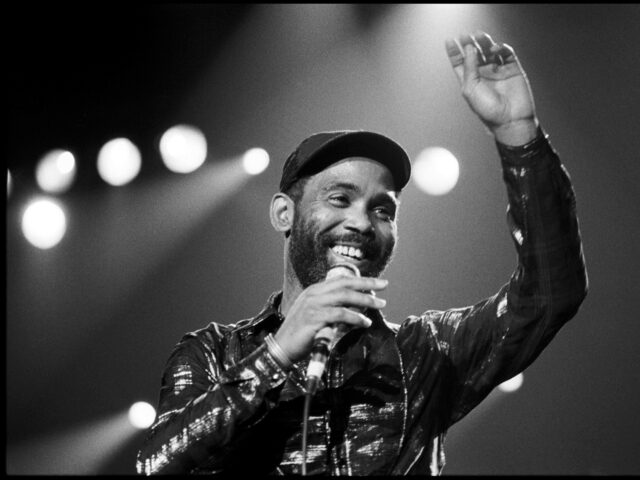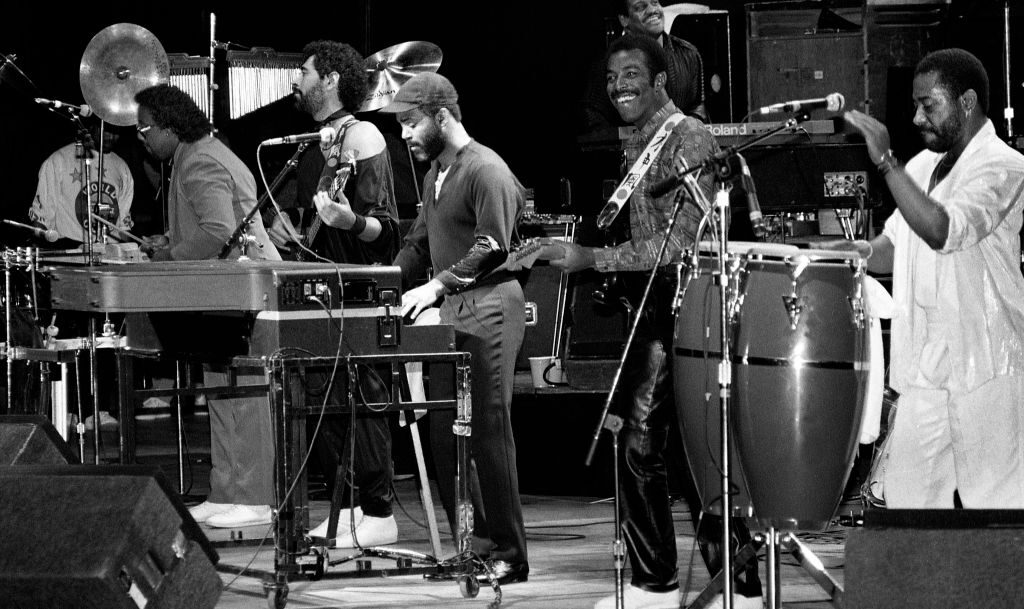Frankie Beverly, Iconic Soul Singer, Crooner Behind ‘Before I Let Go,’ Dies at 77
 David Corio/Michael Ochs Archive/Getty
David Corio/Michael Ochs Archive/Getty
Iconic soul singer-songwriter Frankie Beverly, widely applauded as the lead singer of the R&B group Maze, has died. He was 77.
His death was announced by his family Wednesday on the official Frankie Beverly and Maze Facebook page. The family’s statement read:
Grieving the loss of a loved one is a deeply personal and emotional experience.
During this time, as we are navigating feelings of sorrow, reflection, and remembrance we kindly ask for privacy and understanding, allowing us the space to grieve in our own way. This period for is one of healing, and your respect for our need for solitude is appreciated as we honor the memory of our beloved Howard Stanley Beverly known to the world as Frankie Beverly.
The family went on to say they were urging everyone to keep reflecting on his legacy, and their plans to keep it alive, adding, “He lived his life with pure soul as one would say, and for us, no one did it better. He lived for his music, family and friends. Love one another as he would want that for us all.”
Beverly, who also produced and played guitar, was the founder and driving force behind Maze, a seven- and then eight-piece group Ebony magazine once dubbed “Black America’s favorite band.”
The Washington Post notes beginning in the late 1970s, Maze “developed a reputation as an energetic live act, and rose to the top of the R&B chart with songs that were later sampled by hip-hop artists including 50 Cent, Wale, and the New York duo Rob Base & DJ E-Z Rock.”

File/CHICAGO – 1986: Singers and musicians McKinley ‘Bug’ Williams, Robin Duhe, Frankie Beverly (Howard Beverly), Wuane Thomas and Roame Lowry of Maze featuring Frankie Beverly performs at the Arie Crown Theater in Chicago, Illinois in 1986. (Raymond Boyd/Getty Images)
Beverly concluded a farewell tour with Maze earlier this year and went on to make a guest appearance with the group at the San Jose Jazz Summer Fest in August.
Despite his life of musical fulfillment, Beverly expressed some frustration Maze never went more mainstream, even so the Post story notes “he seemed to believe that the band’s niche status and loyal fan base gave it a certain kind of protection, enabling it to continue performing its brand of old-school R&B even as hip-hop came to dominate the charts.”
“I wish more people did know who I was, but if it’s at the expense of me giving up this thing we have, then I just have to wait until they find out,” he told the Baltimore Sun in 1994.
“ ’Cause whatever we have, whatever this thing is that we seem to have a part of, it’s a cult kind of thing.”
Follow Simon Kent on Twitter: Follow @SunSimonKent or e-mail to: This email address is being protected from spambots. You need JavaScript enabled to view it.
Source link

